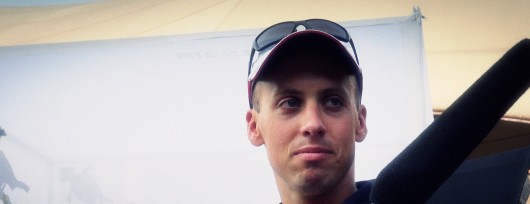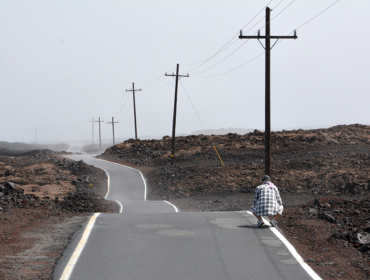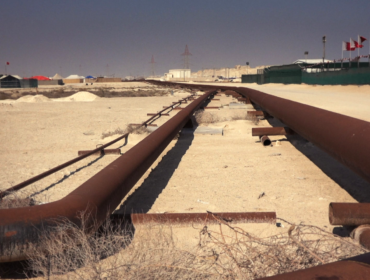Last Sunday was the hottest day in Frankfurt since weather records are archived. The conditions for the triathlon European Championships have been extraordinary hard and lots of precautions have been taken. The water supplies and aid stations have been scaled up and more water showers were implemented.
Experienced voices that had stressed again and again to take it easy and in case slow down have been numerous. Nevertheless one athlete died in the hospital of hyponatremia hours after he had finished the race.The incident of Frankfurt clearly demonstrates that the body is not a simple substitution system, in which you only need to refill what has been lost. Complex regulatory circuits regulate metabolism, appetite and thirst etc. Under the circumstances of stress like an endurance race the patterns of hormones released, the activity of the autonomous nervous system as well as the immune system changes. This implies that the bodily needs for foodstuff and fluids change as well compared to a sedentary situation. Not to forget, we were made for hunting in the heat under scanty conditions – to quickly throw the evolutionary argument into the ring – and like this humans survived for thousands of years.
The best solution to a problem that cannot be solved by standard recipies is to improve our body perception and follow the motto “less is more” under extreme circumstances.
An example: A dehydrated person who passed out can be recovered by small sips of fluid. On the contrary too much fluid would harm. A similar situation you find in person who have been subcooled. You bring them back to a normal body temperature step by step not to induce hyperthermia and a shock situation due to a general vessel dilatation.
BIESTMILCH effects can only be explained and understood, if we comprehend the body as a regulatory system.
Biestmilch stabilizes and can even increase endurance performance and speeds up recuperation. A sport like triathlon not only takes its toll during the race but also during the hard and time-consuming periods of intensive training. Strenuous prolonged exercise makes you vulnerable to infectious diseases, injuries, pains and many an ailment no laboratory parameter can tell you the clear-cut reason behind the problem. With Biestmilch there exists an amazing substance that is capable to intervene positively with the stressed out-of-balance body.
Back to the race in Frankfurt
As I mentioned already it was terribly hot the whole week already. Before the race all athletes have to take part in the race conference where they are informed about the rules and regulations. They receive tips how to manage this long day – for some of them it takes around 15 hours and more – without major health problems. Among the standard advices for racing in the heat are drinking enough and use electrolytes like salt tablets.
But things are not that simple. Under conditions of stress the whole body regulations changes, so do the nervous and hormonal circuits that are responsible for the bodily fluid balance.
For those who are interested I had a look into the literature whether and when salt substitution makes sense. Again, as it is the case with so many advices and recipies one might give, there is always the exception to the rule, and, there is solid data underpinned by other data not less solid.
Keep the balance between hypo- and hyperhydration
Hypohydration and hyperthermia taken on its own have negative effects on the performance. The both combined are particularly serious, both in terms of performance and well-being. Dehydration can be prevented by fluid ingestion before the competition and during. Because of large differences among individuals it is difficult to individualize the advice and give exact amounts per unit of time. Perhaps the best guidance for athletes is to weigh themselves to assess fluid losses during training and racing and limit weight losses to 1% during exercises lasting longer than 1.5 hours. A intact body perception that tells us when we are thirsty and thus have to drink is still the best guidance for achieving a balanced fluid situation in our bodies.
Since Prof. Tim Noakes published his studies it is known that excessive fluid intake can be associated with hyponatremia.
The problem of overdrinking
To prevent hyponatremia it is recommended to avoid overhydration and to inform athletes about the potential dangers of drinking too much water or sodium free beverages.
Vrijens and Rehrer (1999) investigated the effect of replacing sweat losses by a sodium containing drink compared with water and found that the sodium containing drink attenuated the fall in plasma sodium. Interestingly, Speedy, Thompson, Rodgers, Collins, and Sharwood (2002) recently investigated the effects of sodium ingestion on the development of hyponatremia. Thirty-eight athletes competing in an IRONMAN distance triathlon were given salt tablets (700 mg/h) to ingest during the race. Data collected from these athletes were compared with data from athletes not given salt. Sodium ingestion was associated with a decrease in the extent of weight loss during the race. The study gave no evidence that sodium ingestion significantly influenced changes in plasma sodium concentration or plasma volume compared to fluid replacement alone. The authors therefore suggested that sodium supplementation was not necessary to prevent the development of hyponatremia in these athletes.
In conclusion, dehydration can reduce exercise performance. The fluid intake before and during the exercise can prevent this negative outcome. Fluid should be ingested at regular intervals and should contain some sodium (at least 20 mmol/l). The inclusion of carbohydrate can be beneficial especially when the duration of the exercise is long (>1 h). However, very concentrated solutions ( >8%, 80g carbohydrate/l) can impair fluid delivery. During ultra-endurance exercise hyponatremia can develop especially when excessive amounts of water are consumed. After terminating the exercise the negative fluid balance should be definitely restored and this is best achieved by drinking relatively large volumes (150% of fluid lost) of a high sodium drink (60-90 mmol/l).
Sodium supplementation is not required to maintain serum sodium concentrations during an Ironman triathlon
T D Hew-Butler, K Sharwood, M Collins, D Speedy and T Noakes
University of Cape Town, Cape Town, South Africa
Their study concludes that sodium supplementation was not necessary to preserve serum sodium concentrations in athletes competing for about 12 hours in an IRONMAN triathlon. The Institute of Medicine’s recommended daily adequate intake of sodium (1.5 g/65 mmol) seems sufficient for a healthy person without further need of supplementing it during athletic activity.






